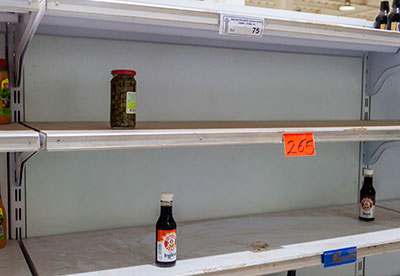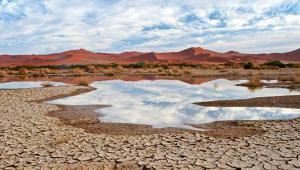empty-shelf-santa-elena-de-uairen-venezuela-shutterstock_411003712_1.jpg

Empty shelves in a Venezuelan supermarket.
According to the BBC, the government has now imported 115,000 tons of foodstuffs including maize, rice, sugar, vegetable oil and beans to be delivered “house by house” through communal councils.
Venezuela’s food minister Rodolfo Marco Torres has said 70% of the country’s food will now be supplied this way, much to the outrage of the opposition who are firmly against the plan.
President Nicolás Maduro announced the creation of bodies, staffed by socialist party members, to control food distribution last week.
The Local Committees for Supply and Production (CLAP), will be in charge of food supplies, tasked with preventing black market sales, and organising door-to-door distributions to the thousands of families expected to sign up to the initiative.
The food parcels, which are meant to last 21 days, are intended to supplant the current ration system imposed on those buying food in Venezuela.
The system often leaves people waiting in supermarket lines for hours, only to find the supermarket has run out of basic goods like milk and rice once they finally get in.
Shortages of basic consumer goods, power cuts, soaring prices and increasing crime levels have led to almost daily protests in the country.
While Maduro defends the measure as necessary and temporary, the opposition have objected to what they see as a monopoly on and politicisation of the food system.
A coalition of opposition parties has said the plan will exacerbate shortages as scarce food is diverted to the new system, and is akin to “blackmailing people through their stomach” into supporting the government.
Venezuela is in the midst of an economic crisis with the crash in oil prices hitting the OPEC nation’s finances hard. But, critics say, almost two decades of failed socialist economic policies are also a factor in the chaos.
Maduro declared a state of emergency in May, giving him more powers to deal with the spiralling economy.
As well as economic crisis, he cited an “economic war” waged by the opposition, the private sector and foreign aggressors, namely the US, to destabilise the country and topple his socialist government.
Venezuela’s coalition of opposition parties, which hail from across the political spectrum, are seeking a recall of the increasingly unpopular leader.













